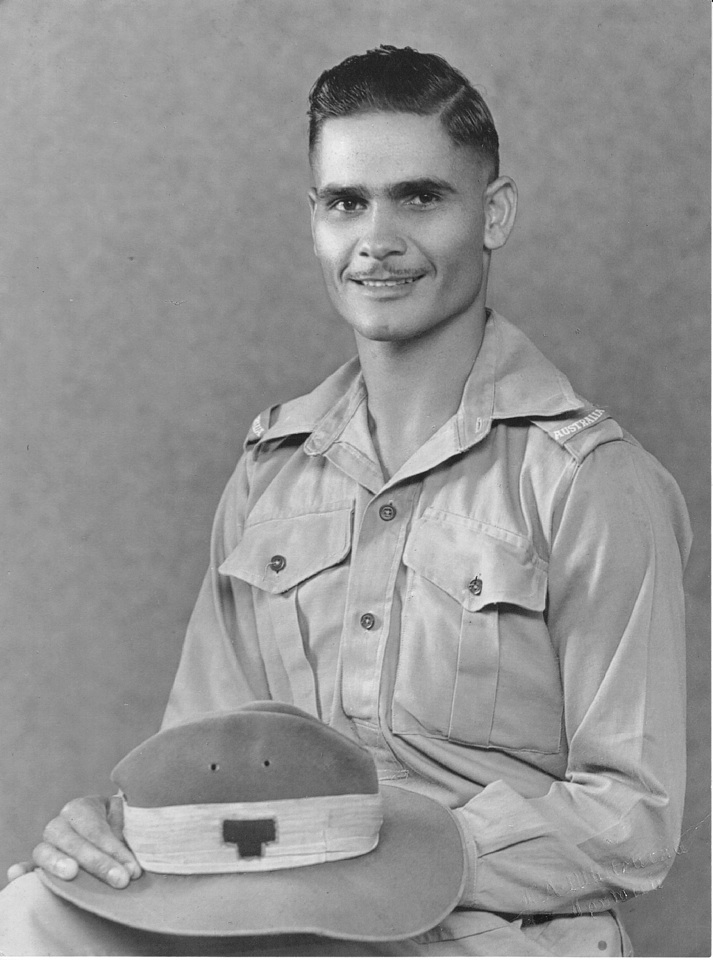Vincent Bunda Second World War soldier c1940
Comments
-
Tracey Bunda April 25, 2015 3:30 pmMy Dad ran away from Cherbourg when he was approximately 15 years of age so I want to thank those responsible for finding this photograph and caring enough to remember that my family has connection to Cherbourg and more importantly take the time to include this photograph in the collection of the Ration Shed Museum. My father was only a teenager when he enlisted. I am presuming the fervour of war, his own sense of justice, his need to protect and his strong identification as a Wakka Wakka warrior (warrior being my inclusion) wrapped around him so tight, confirming that this was the 'right thing to do' . I think about that, what does it mean for a young black boy to go to strange lands, gun in hand, fighting ultimately for a 'national right of freedom' when his own right to be free in the nation had not been known. At the end of World War II my father was to be found in Vladisvostock. I can't quite remember how I know this, perhaps from the time I visited the War Memorial in Canberra looking for information about him and where I also found a portrait of my maternal grandfather, Horace Dalton. It is an interesting story. Why is there a young Aboriginal man in Russia? I wold like to think he volunteered to be part of the repatriation of Japan and I will need to research further if this was the case. He returned to Australia, was let off the troop carrier, and had to find his way back to Queensland. He hitchhiked. At Singleton he stopped and pulled up at a bar and asked for a drink. He was refused and was told that 'people like him were not welcome'. To his credit and the strength of his conviction he told the hotelier that, 'it was people like him, who had fought in the war, to allow people like the hotelier, to have a livelihood.' I can only imagine that this tarnished the joy of coming home. Coming home, for my Dad and for the many other Aboriginal and Torres Strait Islander soldiers meant a 'remembering' , not of their courage and determination, nor their sharing of deep senses of humanity and honour. It would be a sharp reentry into remembering that there was a further battle yet to be won...a battle along the lines of race, a battle that is never quite over in this country. I don't need a national day of remembrance to think of my father, I hold his memory in my heart all the time.

